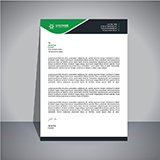Every insurance carrier has underwriting guidelines, detailing the types of risks they do not want to insure or the conditions under which they will insure risks that are on the border of acceptability. When insurance agencies push the limits of those guidelines and a major loss follows, the carrier and agent can quickly become adversaries.
A federal lawsuit involved a carrier, a managing general agent (MGA), a program administrator, a retail broker and a trucking company. The MGA signed a contract with the program administrator in 2003 for the carrier’s Louisiana commercial auto business. It prohibited the administrator from binding risks that were unacceptable under the MGA’s underwriting guidelines.
The contract also contained a hold harmless agreement. It required the administrator to hold the MGA harmless from any claims the carrier might be forced to pay for a risk that was outside the guidelines.
In June 2013, the carrier and MGA issued new underwriting guidelines for commercial auto policies in Louisiana. The guidelines prohibited:
- Risks that hauled logs or sand and gravel
- Risks employing drivers with histories of speeding violations
They also required the administrator to maintain at least minimum documentation of each risk. The administrator had to refer to the MGA any risks outside the guidelines that it wished to write, including prohibited risks and those in business for less than one year.
The next year, a retail broker sent to the administrator a submission for a trucking company that allegedly hauled grain most of the time. The next day, the administrator issued a quote and the retailer asked for coverage to be bound. The signed applications included motor vehicle records, one of which showed a “promise to appear” with the notation “SP.” The administrator did not investigate. It requested three years’ loss runs within 60 days, but they never arrived. Nevertheless, a policy was issued.
A subsequent loss control survey rated the risk as “marginal,” but the administrator did not take any action. The insured later testified that he had been hauling logs for twelve years and that logging trucks were on his premises at the time of the survey. When the retailer asked the administrator to add a timber company as an additional insured, the administrator did not investigate this, either.
A month before expiration, one of the insured’s vehicles struck a pickup truck. Three people died and a fourth was injured. The record does not state the amount of the loss; fatal injuries imply damages in the millions. After the accident, the administrator cancelled the policy upon learning that the insured hauled logs.
The carrier and MGA sued the administrator for breach of contract and indemnification, among other things. They asked the court to find the administrator liable without the case going to a jury.
The judge agreed with them. The administrator had argued that the risk was a new venture with no prior insurance record. The judge held the facts said otherwise, noting that the administrator had requested loss runs which would not exist for a new venture. The failure to obtain the loss runs were a breach of contract.
He also said that binding coverage on a prohibited risk (a log hauler) was a breach of contract. The administrator could have avoided the breach by referring the account to the MGA, he noted, but it did not do so.
The administrator also had a clear duty to hold the carrier and MGA harmless, he said. The contract, he ruled, required the administrator to hold them harmless for claims they had to pay on behalf of a prohibited risk, such as one that hauled logs.
The administrator failed to thoroughly underwrite this risk. It did not determine the exact nature of the insured’s operations, did not ask about the incident on the MVR, and did not obtain the requested loss runs. A better underwriting job would have revealed that the risk was outside the guidelines. They could have then either cancelled the policy or referred it to the MGA for approval. Instead, they got sued by their partners.
Writing profitable business begins with risk selection. Whether an agency is an MGA, a program administrator or a retailer, there is no substitute for sound upfront underwriting.
















